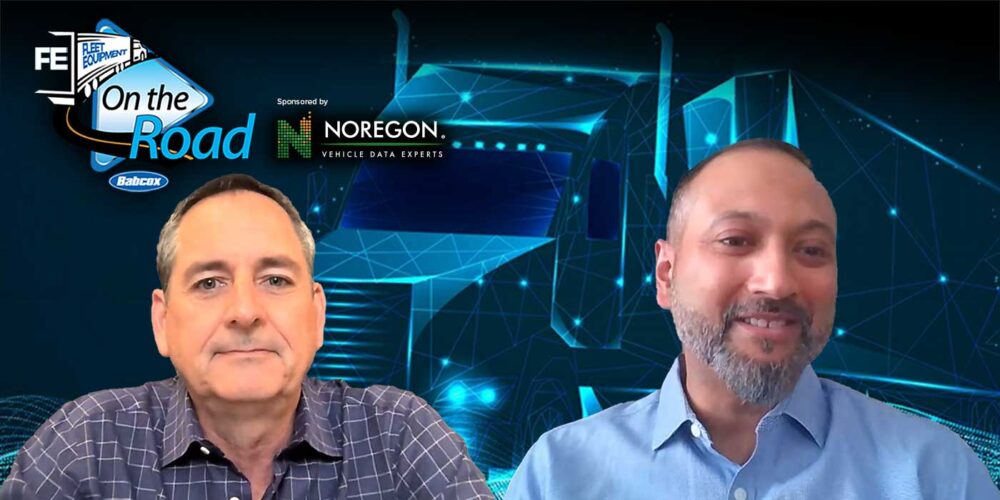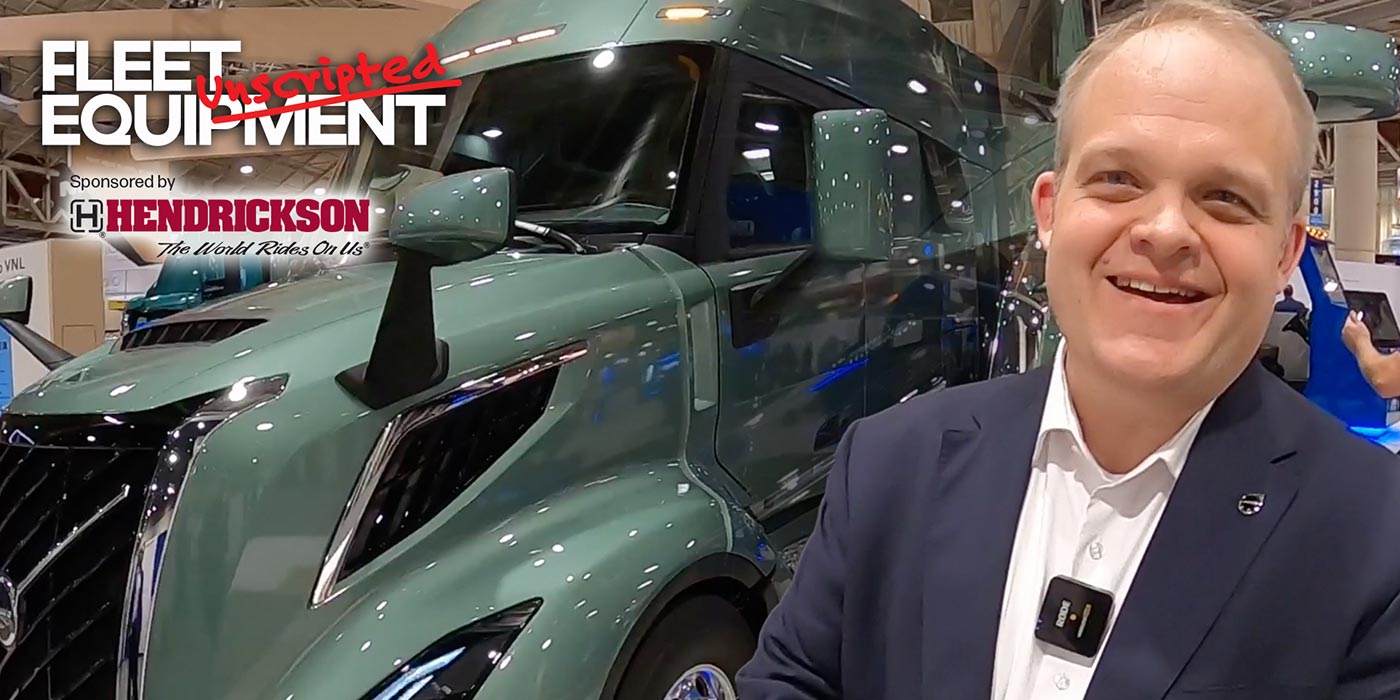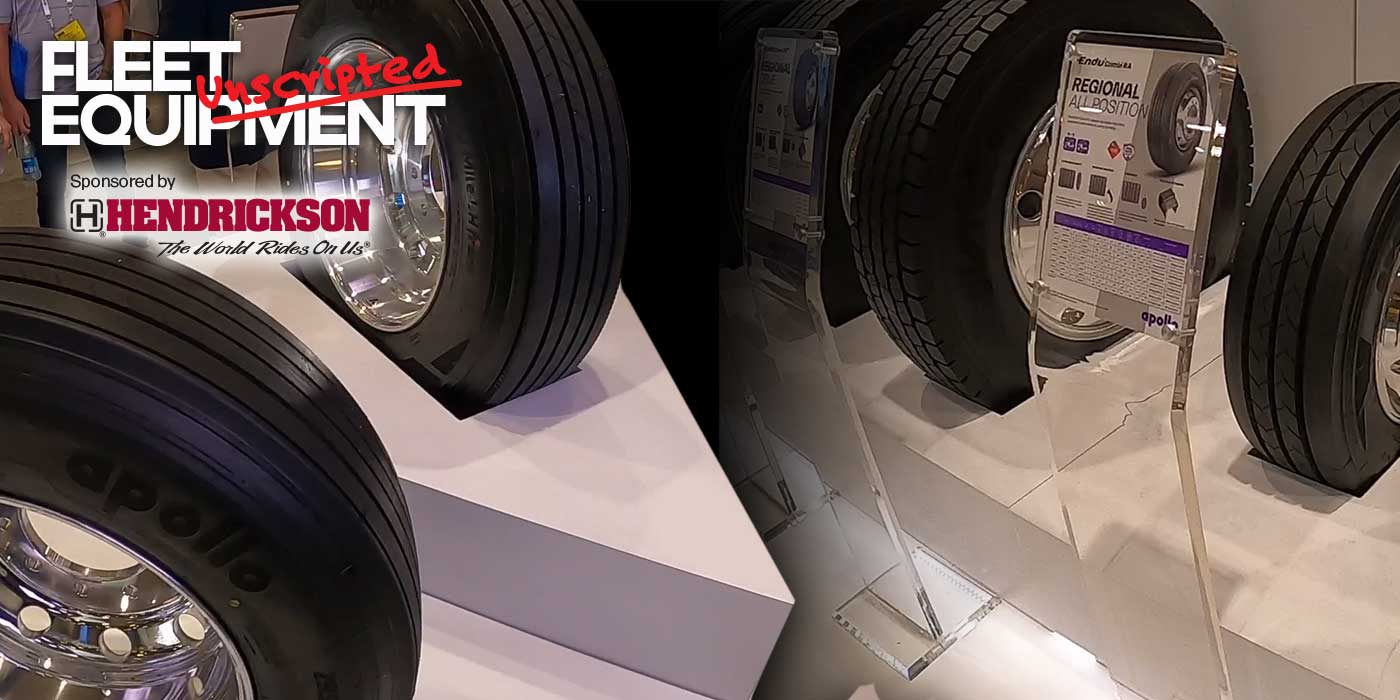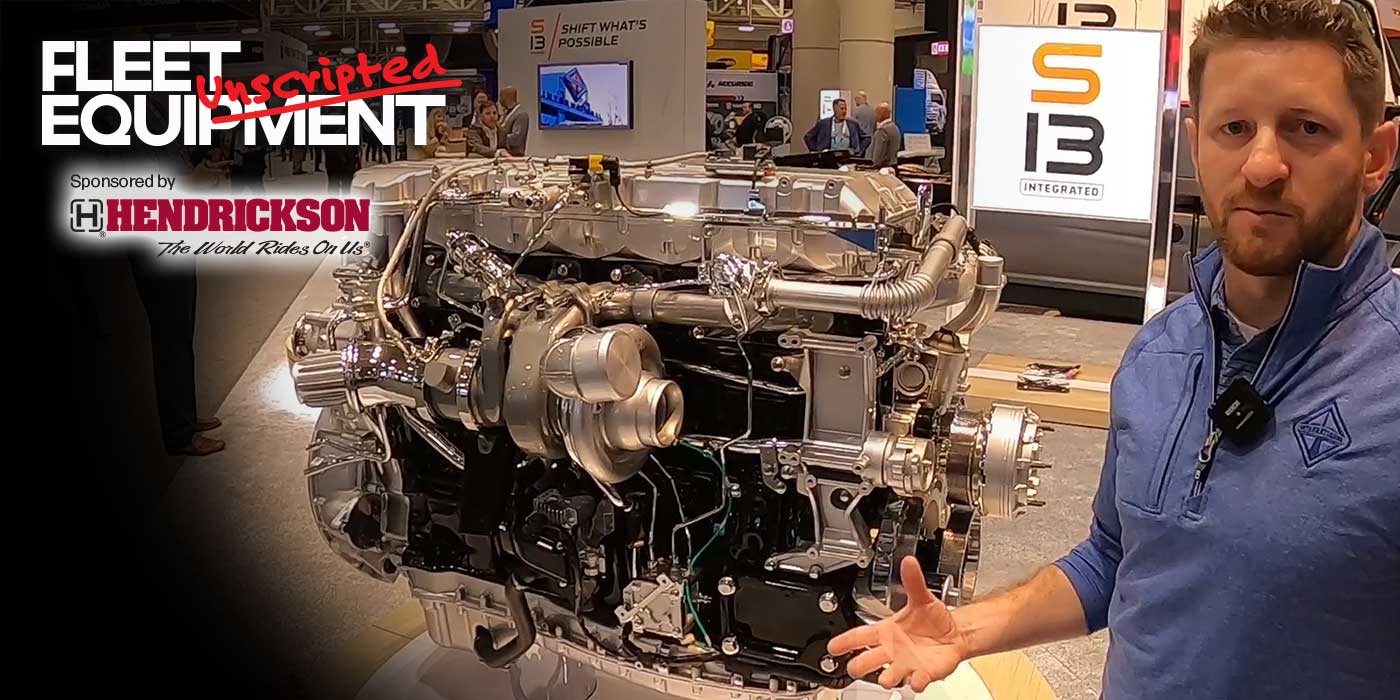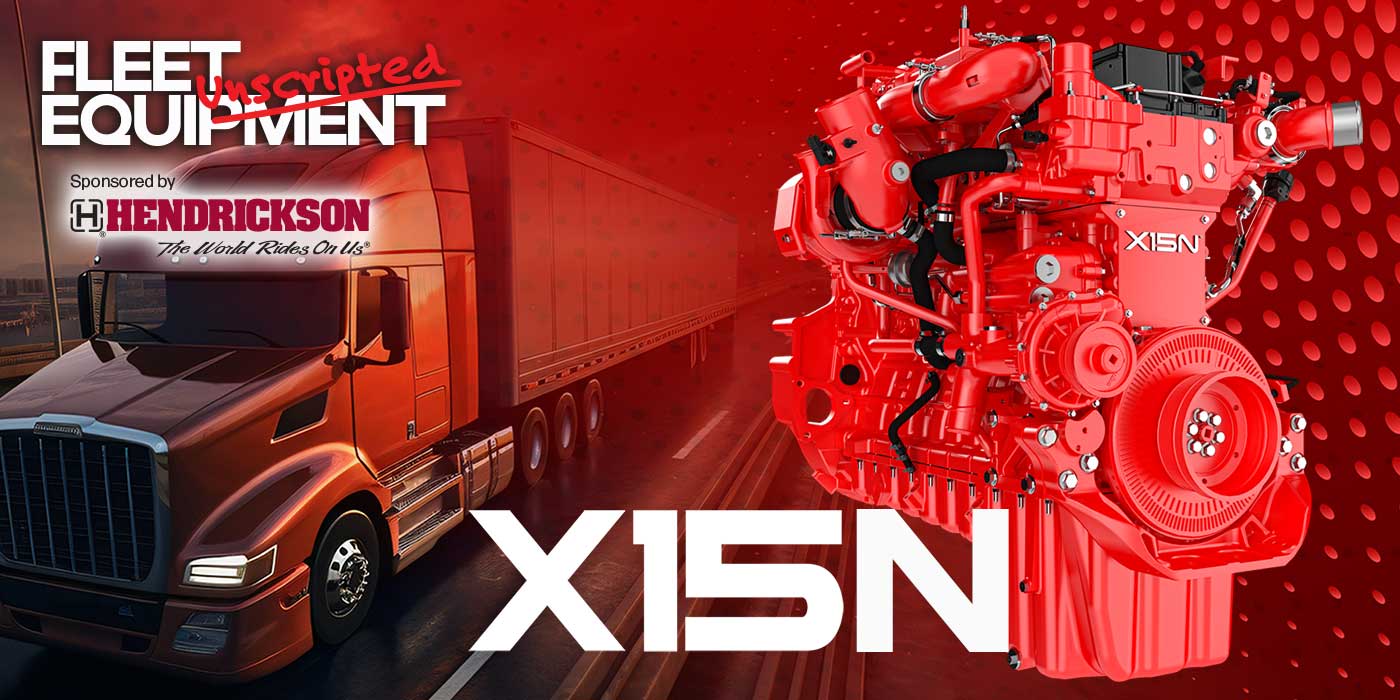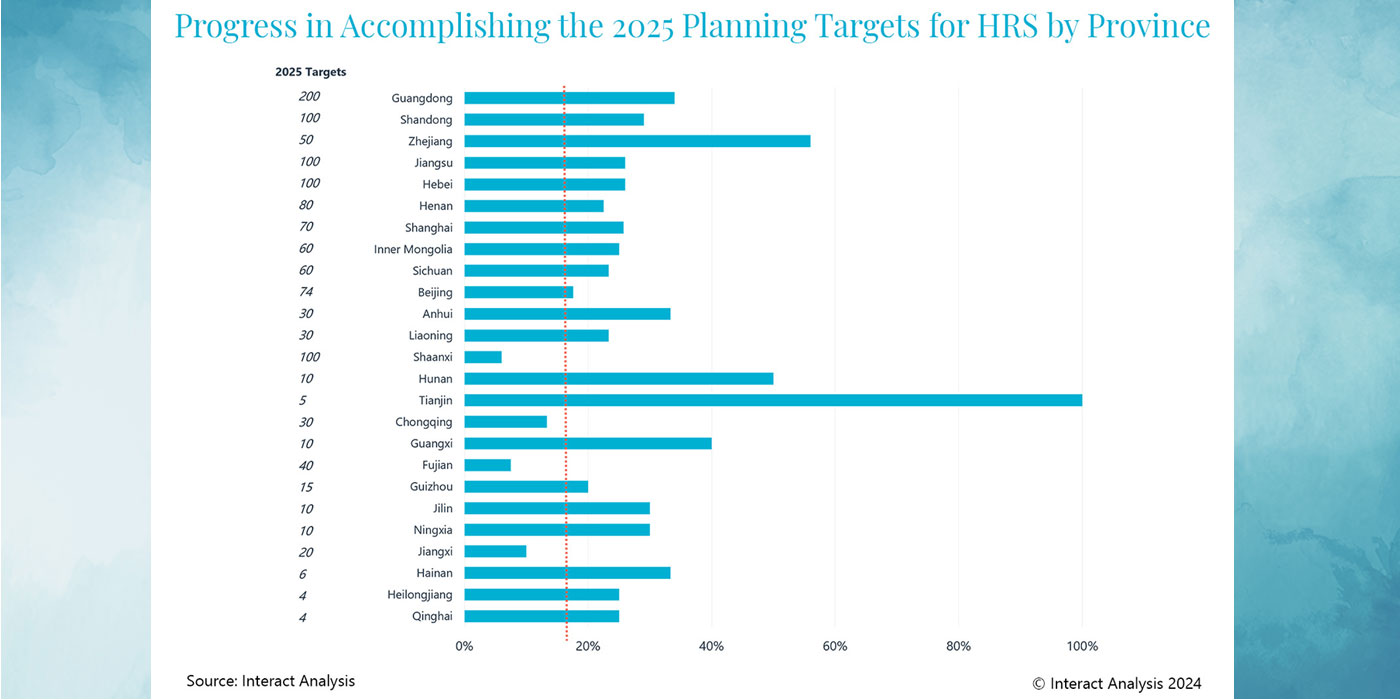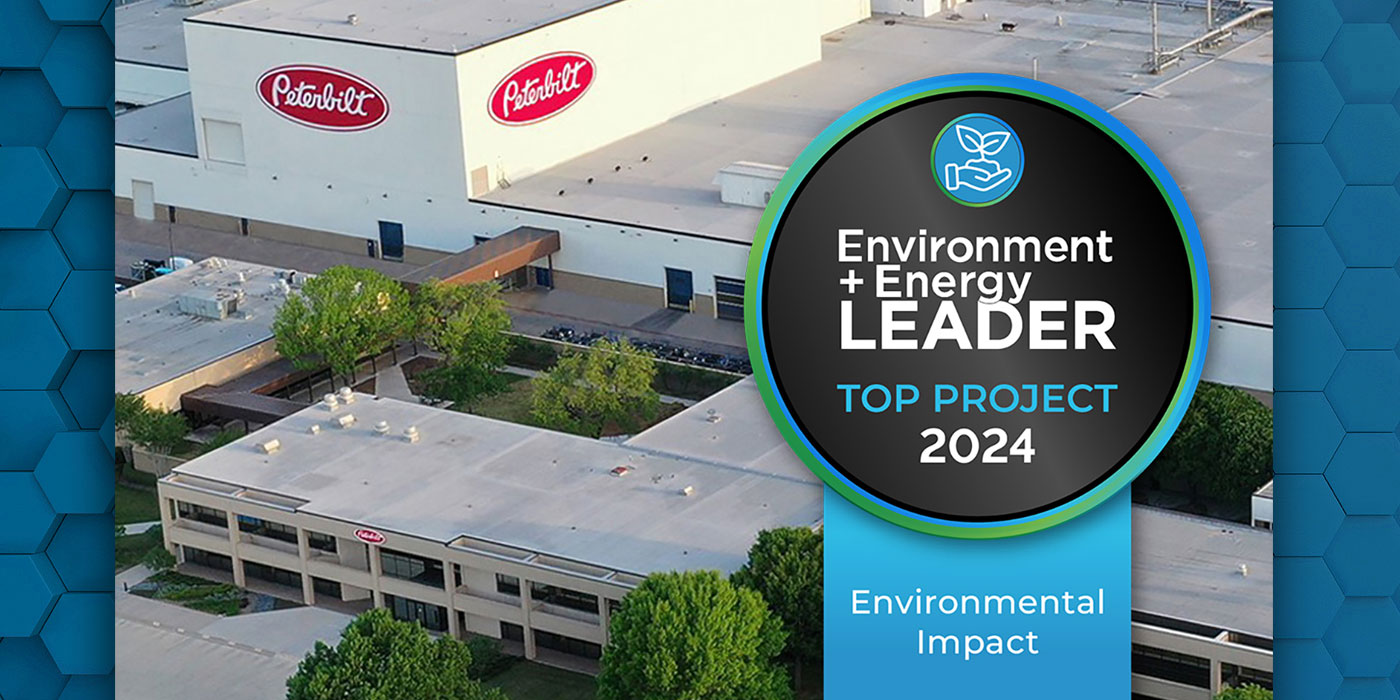“Not a one-size fits all solution.” That’s a mantra of the heavy-duty trucking industry where equipment has been and will be built to spec. Application drives equipment decisions. Yet somehow that idea gets lost when we’re talking about zero-emissions vehicles.
Maybe it’s because today’s battery electric trucks are “simpler” in terms of hard-part components that we paint future powertrains with a broad brush. Or maybe it’s that OEMs, suppliers and fleets are taking zero-emission equipment possibilities seriously and finding out that the tried-and-true, purpose-built ethos of trucking equipment will continue in the zero-emissions age.
Enter hydrogen internal combustion engines: a technology with growing potential as a decarbonization option. Peterbilt showed off a hydrogen-fueled PACCAR engine outfitted in a DAF truck in its booth at ATA’s MCE, and we caught up with Jacob White, product marketing manager, to talk details.
“This hydrogen internal combustion engine uses hydrogen as a fuel, not unlike a natural gas-powered unit today, and it produces zero carbon,” he said. “This is a zero-carbon emission solution and a simple aftertreatment system. It should be a relatively similar experience to running a truck that our fleets are used to today.”
While it boasts zero carbon emissions, there are some caveats to the technology, as well as more potential benefits. For the full details, watch the video above.

No script? No plan? No problem. Welcome to Fleet Equipment Unscripted—the video interview series that connects you with the greatest minds in the heavy-duty trucking world. Fleet Equipment Unscripted is sponsored by Hendrickson.





